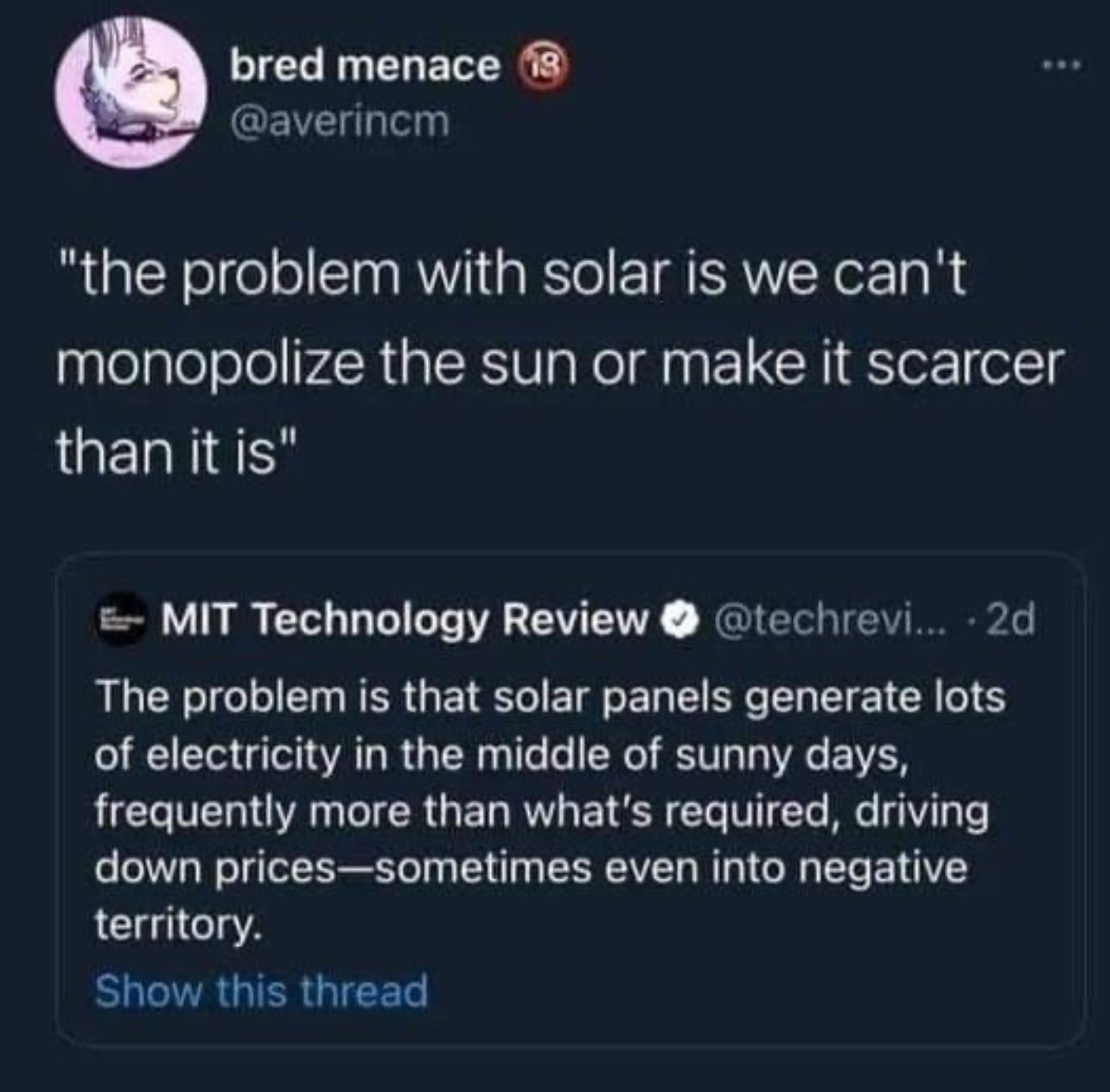From a grid stability point, you can't produce more than is used, else you get higher frequencies and/or voltages until the automatics shut down. It's already a somewhat frequent occurence in germany for the grid operator to shut down big solar plants during peak hours because they produce way more power than they can dump (because of low demand or the infrastructure limiting transfer to somewhere else)
Negative prices are the grid operator encouraging more demand so it can balance out the increased production.
